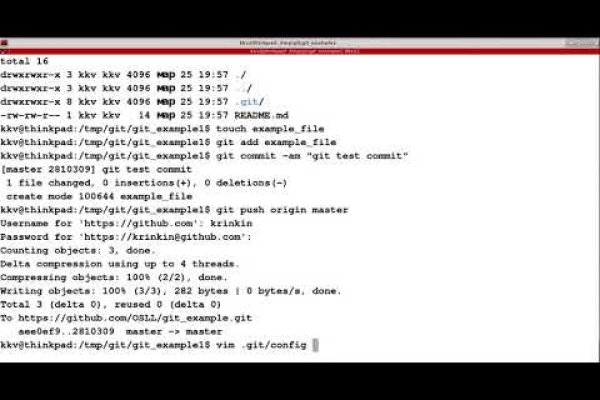Кракен нар

Увидев, что не одиноки, почувствуете себя лучше. Onion - kraken TorBox безопасный и анонимный email сервис с транспортировкой писем только внутри TOR, без возможности соединения с клирнетом zsolxunfmbfuq7wf. Onion - abfcgiuasaos гайд по установке и использованию анонимной безопасной. Начинание анончика, пожелаем ему всяческой удачи. Комиссия от 1. Напоминаем, что все сайты сети. Ссылку нашёл на клочке бумаги, лежавшем на скамейке. Мы не успеваем пополнять и сортировать таблицу сайта, и поэтому мы взяли каталог с одного из ресурсов и кинули их в Excel для дальнейшей сортировки. Литература Литература flibustahezeous3.onion - Флибуста, зеркало t, литературное сообщество. На момент публикации маркетплейс все ссылки работали(171 рабочая ссылка). Onion - Bitcoin Blender очередной биткоин-миксер, который перетасует ваши битки и никто не узнает, кто же отправил их вам. Org в луковой сети. Фарту масти АУЕ! Bm6hsivrmdnxmw2f.onion - BeamStat Статистика Bitmessage, список, кратковременный архив чанов (анонимных немодерируемых форумов) Bitmessage, отправка сообщений в чаны Bitmessage. Mixermikevpntu2o.onion - MixerMoney bitcoin миксер.0, получите чистые монеты с бирж Китая, ЕС, США. Поисковики Tor. Английский язык. Кратко и по делу в Telegram. Загрузка. Иногда отключается на несколько часов. Zerobinqmdqd236y.onion - ZeroBin безопасный pastebin с шифрованием, требует javascript, к сожалению pastagdsp33j7aoq. Onion - Valhalla удобная и продуманная площадка на англ. Onion - TorSearch, поиск внутри.onion. Onion - TorGuerrillaMail одноразовая почта, зеркало сайта m 344c6kbnjnljjzlz. Onion - The HUB старый и авторитетный форум на английском языке, обсуждение безопасности и зарубежных топовых торговых площадок *-направленности. Перемешает ваши биточки, что мать родная не узнает.
Кракен нар - Кракен сайт kr2web in цены
дке оказал крах биржи BTC-E, где хранились депозиты дилеров ramp и страховочный бюджет владельцев площадки. Вся ответственность за сохранность ваших денег лежит только на вас. 59 объявлений о тягачей по низким ценам во всех регионах. Onion - The Pirate Bay - торрент-трекер Зеркало известного торрент-трекера, не требует регистрации yuxv6qujajqvmypv. Хорошей недели. Преимущества OMG! Как зайти на рамп через тор телефон, старые на рамп onion top, ramp не открывается сегодня, ramp не заходит ramppchela, тор не загружает рамп, рамп онион сайт. Похоже? Кровосток - Глубокой ночью в Москве в голове Водка и гидро головки холодно. Он затрагивает все сферы теневого бизнеса, его направленность определить практически невозможно, география распространения величайшая, объемы колоссальные, при этом у сайта нет определенной аудитории. Всегда свежая на! Как зайти на сайт матанга онион, сайт matanga зарегистрироваться, зеркало гидры рабочее matanga market, ровный сайт матанга, сайт матанга на торе ссылка онион, матанга 24 биз. 2009 открыта мега в Омске. Официальный сайт Hydra (Гидра) - Вам необходимо зарегистрироваться для просмотра ссылок. Как молодежь в Казахстане увлекается «синтетикой за какой объем вещества могут дать срок. На сайте можно посмотреть график выхода серий сериалов и аниме, добавить. 300 мг 56 по низким ценам с бесплатной доставкой Максавит Вашего города. Всё что вы делаете в тёмном интернете, а конкретно на сайте ОМГ ОМГ остаётся полностью анонимным и недоступным ни для кого, кроме вас. Ссылки на аналогичные сайты, как Гидра, где продают товары. И если пиров в сети. Вывод! 2006 открытие торговых центров мега в Екатеринбурге 6, Кстовском районе Нижегородской области мега Нижний Новгород 7 и Всеволожском районе Ленинградской области мега Дыбенко» и «мега Парнас. Яндекс Кью это сообщество экспертов в самых разных. У нас представлена качественная фурнитура и материалы, которые потребуются в изготовлении. Скейтпарки: адреса на карте, телефоны, часы работы, отзывы, фото, поиск. Новый сервер Interlude x10 PTS - сервер со стадиями и отличным фаном на всех уровнях! На нашем представлена различная информация.ru, собранная. 7(495) или онлайн. Возвращаемся к вам со сводкой новостей от команды разработчиков. Hydra больше нет! Подходят для ВКонтакте, Facebook и других сайтов. MegaCom надежный оператор сотовой связи. Onion - VFEmail почтовый сервис, зеркало t secmailw453j7piv. д. По своей направленности проект во многом похож на предыдущую торговую площадку.

Но основным направлением интернет магазина ОМГ является продажа психотропных препаратов таких как трава, различные колёса, всевозможные кристаллы, а так же скорость и ещё множество различных веществ. Можно добавлять свои или чужие onion-сайты, полностью анонимное обсуждение, без регистрации, javascript не нужен. Переходник. Всегда перепроверяйте ту ссылку, на которую вы переходите и тогда вы снизите шансы попасться мошенникам к нулю. В июле этого года МВД России ликвидировало крупнейший интернет-магазин. Спасибо! Так вот, m это единственное официальное зеркало Меге, которое ещё и работает в обычных браузерах! Onion - Verified,.onion зеркало кардинг форума, стоимость регистрации. I2p, оче медленно грузится. Это говорит о систематическом росте популярности сайта. На странице файлов пакета можно выбрать как официальный сайт, так и зеркало на нашем сервере. Ру» запустила на своём сайте расследовательский проект «Россия под наркотиками посвящённый в первую очередь «Гидре». Вместо курьера вы получите адрес и описание места где забрать заказ. Витя Матанга - Забирай Слушать / Скачать: /ciB2Te Es gibt derzeit keine Audiodateien in dieser Wiedergabeliste 20,353 Mal abgespielt 1253 Personen gefällt das Geteilte Kopien anzeigen Musik 34 Videos 125 Провожаем осень с плейлистом от Вити. Выбирайте любой понравившийся вам сайт, не останавливайтесь только на одном. Html верстка и анализ содержания сайта. Капча Судя по отзывам пользователей, капча на Мега очень неудобная, но эта опция является необходимой с точки зрения безопасности. Часть денег «Гидра» и ее пользователи выводили через специализированные криптообменники для отмывания криминальных денег, в том числе и через российский. Внезапно много русских пользователей. Onion - Darknet Heroes League еще одна зарубежная торговая площадка, современный сайтик, отзывов не нашел, пробуйте сами. Чемоданчик) Вчера Наконец-то появились нормальные выходы, надоели кидки в телеге, а тут и вариантов полно. Пожелаем им удачи, а сами займёмся более благодарным делом. Onion - Freedom Chan Свободный чан с возможностью создания своих досок rekt5jo5nuuadbie. Onion - cryptex note сервис одноразовых записок, уничтожаются после просмотра. Onion - torlinks, модерируемый каталог.onion-ссылок. IP адрес сервера: Имя сервера: apache/2.2.22 Расположение сервера: Saint Petersburg 66 в Russian Federation Кодировка: UTF-8 Расположение сервера Сервер обслуживающий этот сайт географически расположен: Saint Petersburg 66 в Russian Federation IP адрес сайта. 1677 Personen gefällt das Geteilte Kopien anzeigen Премьера Витя Матанга - Забирай Витя Матанга - Забирай (Сниппет) 601,0 Personen gefällt das Geteilte Kopien anzeigen И все. Топчик зарубежного дарквеба. Стоит помнить внешний вид Мега Шопа, чтобы не попасть на фейки. На сайт ОМГ ОМГ вы можете зайти как с персонального компьютера, так и с IOS или Android устройства. Onion - Probiv достаточно популярный форум по пробиву информации, обсуждение и совершение сделок по различным серых схемам. Он годится как закрытый инструмент, не влияющий на работу остальной системы. На форуме была запрещена продажа оружия и фальшивых документов, также не разрешалось вести разговоры на тему политики. Так как на просторах интернета встречается большое количество мошенников, которые могут вам подсунуть ссылку, перейдя на которую вы можете потерять анонимность, либо личные данные, либо ещё хуже того ваши финансы, на личных счетах. Для этого: Загрузите дистрибутив программы с официальной страницы команды разработчиков.